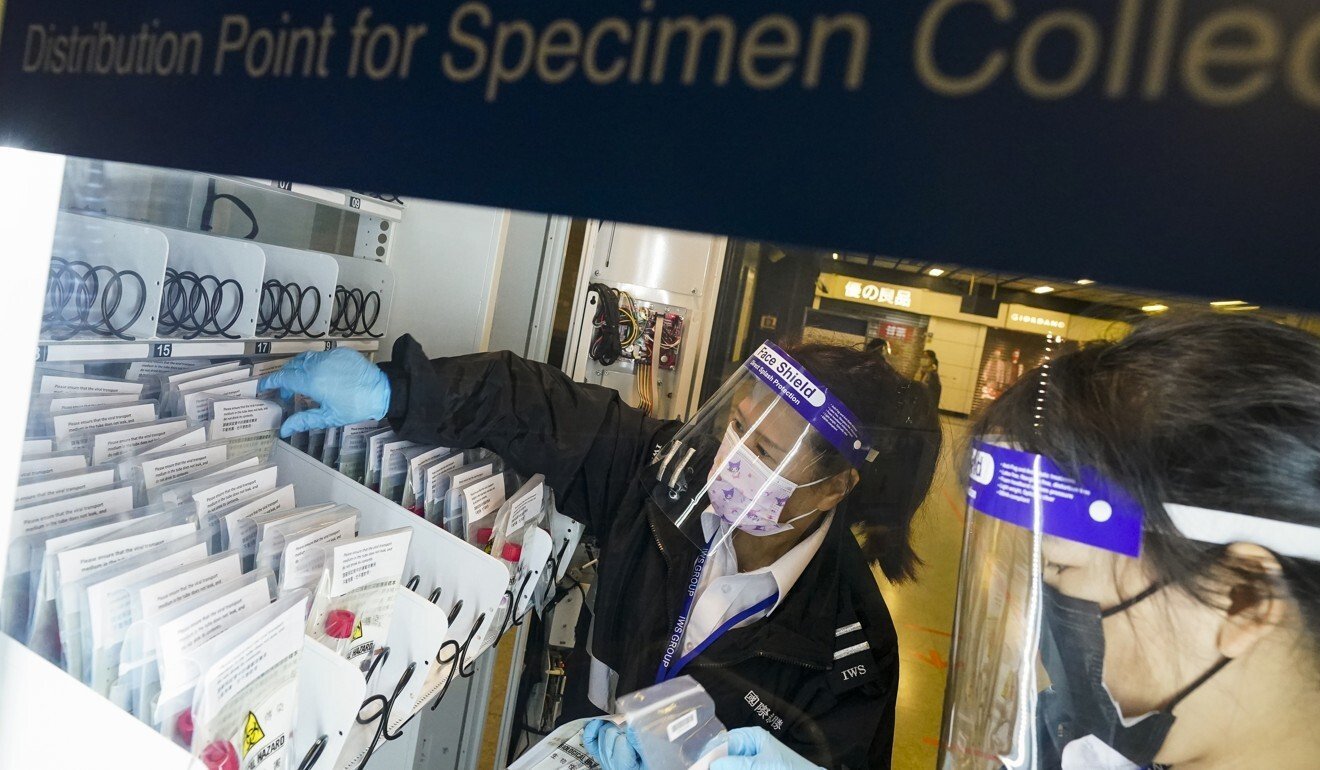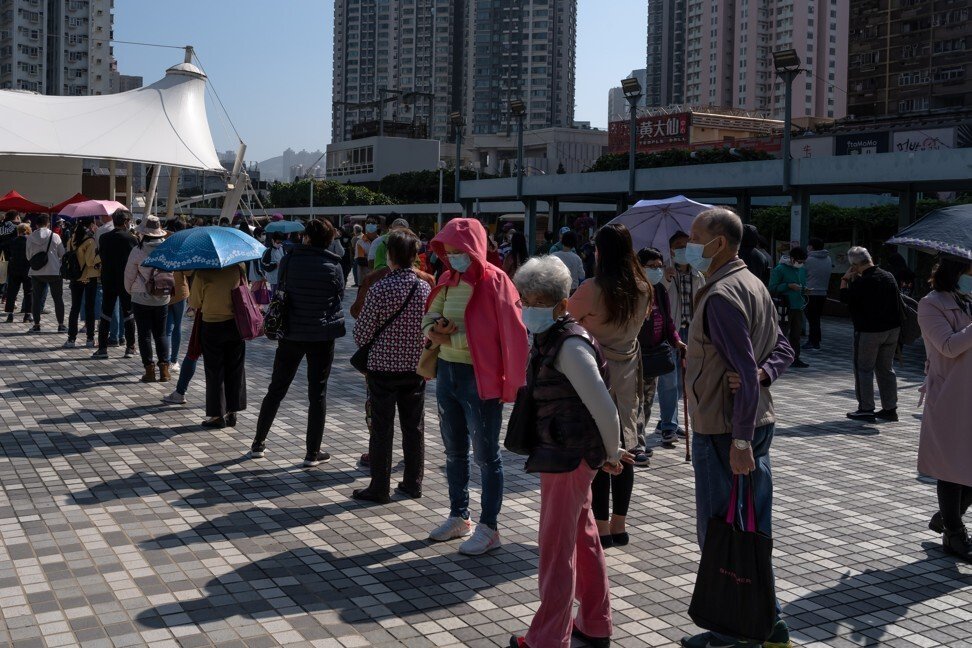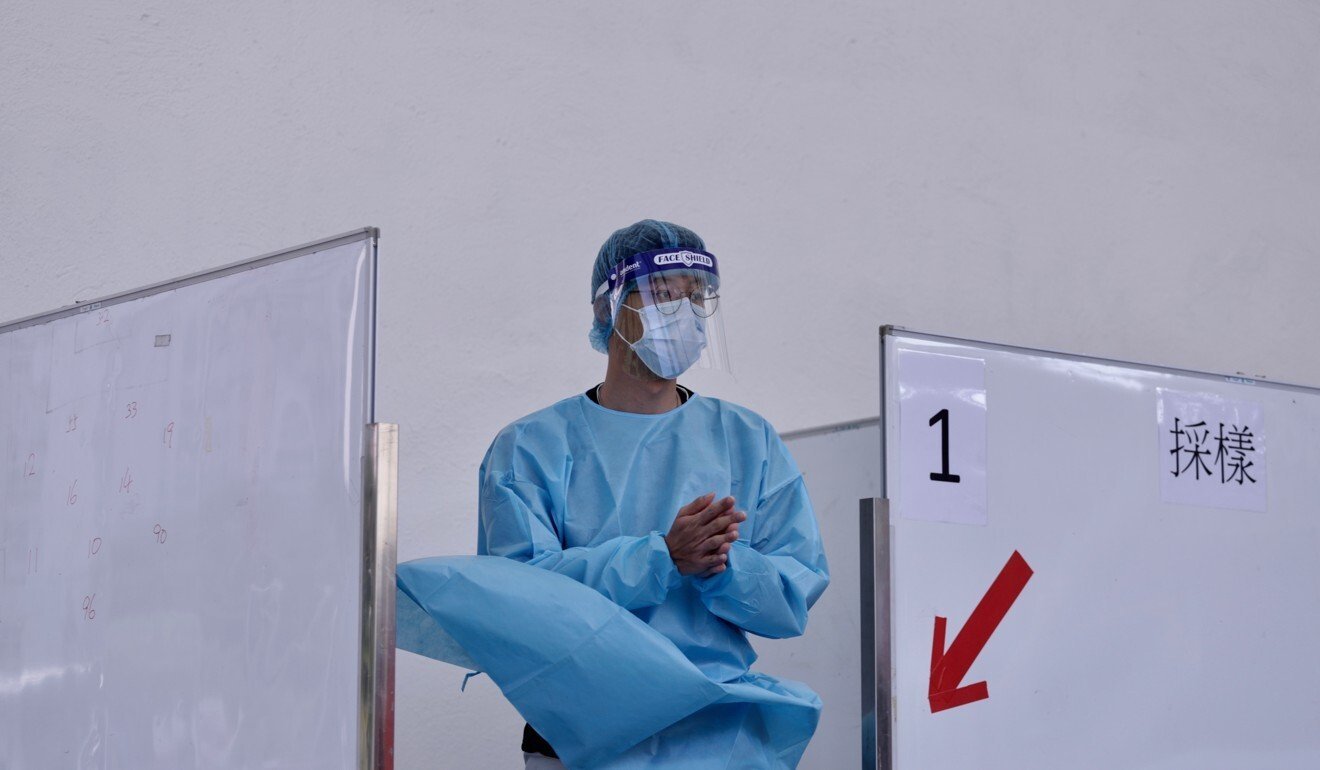Hong Kong News

Cluster alert at Hong Kong department store amid ‘worsening’ Covid-19 crisis
A Hong Kong department store emerged on Monday as a possible new Covid-19 cluster after at least 10 workers there tested positive for the coronavirus, while infections continued to spread through a public housing block and experts cautioned that the city’s fourth wave was getting worse.
Contagion fears at the Sha Tin branch of Yata, a shopping complex drawing masses of customers, were raised after several staff were among 78 new confirmed infections, including 29 local cases with untraceable sources.

Hospital officials also reiterated their warnings over the growing pressure on intensive care units, with the current wave of Covid-19 setting it apart from others by younger people also falling seriously ill.
Monday also brought more infections linked to the “super-spreader” dance venue cluster, construction sites in Tseung Kwan O and Kai Tak, and a public housing estate in Kwai Chung.
Dr Chuang Shuk-kwan, head of the communicable disease branch of the Centre for Health Protection, revealed that one more resident from Block 8 of Kwai Shing West Estate had been confirmed infected, but that person did not live on the fifth floor of the block.
The centre said on Monday night that three more residents from the fifth floor were confirmed as having the virus, pushing the total number of infected people on that floor to 15.
Chuang said: “At this initial stage, we believe the transmission happened through shared facilities and environmental contamination.”
She added that more than 1,000 specimens had been collected from people at the residential block in the morning, and results were pending. More than 20 environmental samples were also collected from places such as lifts and refuse rooms.
The five flats on the fifth floor that had previously seen infections, Chuang said, comprised two pairs of units a few doors apart located just opposite each other, along with another one a few doors down.
“They are located pretty close to each other. It is possible that [residents] had met each other or touched some shared facilities, and thus they got infected,” she said.
She urged the public to stay vigilant in terms of both personal and environmental hygiene.
“Perhaps you would need to assume all the environment around is possibly contaminated … After touching surfaces in public areas, such as supermarkets, homes or offices, you need to wash your hands,” she said.
All residents from the fifth floor would need to be quarantined as they were considered as close contacts.
A new possible cluster also emerged at Yata in Sha Tin, a 90,000 sq ft department store encompassing retailers and restaurants.
Health authorities revealed that five people working in the vegetable and fresh meat sections of the store’s supermarket tested preliminary-positive for the virus, after a staff member was earlier confirmed infected.

The department store later said that at least four more staff, from sections selling household and baby products, as well as cosmetics, had also tested positive, although that was not verified by the authorities.
Yata said the Sha Tin store had been closed until further notice with all staff undergoing screening.
A “small outbreak” was also reported at the Centre for Health Protection itself, where one worker on the fourth floor of its Kowloon City headquarters was confirmed as infected, while two more employees on that floor tested preliminary-positive, according to Chuang.
Those employees were involved in contact tracing and did not deal with patients.
Chuang said the outbreak was similar to others in office settings, and the authority was still checking how many employees needed to be quarantined.

Meanwhile, five more cases were reported from the dance cluster, bringing the total number of infections tied to that outbreak to 650.
The cluster involving construction sites in Lohas Park and Kai Tak saw three more cases, growing to a total of 50 people. The Fong Shu Chuen Day Activity Centre cum Hostel, a facility for people with intellectually disabilities in Shau Kei Wan, reported one more case.
Among the 29 untraceable cases was an usher at singer Hins Cheung King-hin’s concerts, which were held at Hong Kong Coliseum in Hung Hom last month. Chuang said the patient had worked the entrance giving concertgoers directions for five of the eight concert sessions.
“We would not rule out that person having contacted a rather large amount of the public, and some transmissions might have been involved,” she said, adding almost 50,000 attended the concerts.
Of Monday’s 78 confirmed cases, seven were imported and the rest were locally transmitted.
Hong Kong has so far recorded 6,975 confirmed infections, with 112 related deaths.
The pandemic situation has been worsening since last week, with four days seeing more than 100 newly confirmed infections daily.
Chuang said Monday’s slight dip in cases could be due to the “weekend effect”, as some collection points did not operate on Sundays and fewer people submitted samples.
Dr Kenny Chan King-chung, a member of the Hospital Authority’s coordinating committee in intensive care, expected pressure on intensive care units to continue mounting as the number of patients whose conditions were rapidly deteriorating was higher in this fourth wave.
“Different from those in the past, conditions of some of the patients [in the current wave] quickly worsened right after admission. Some required intubation in the emergency department and to be sent to the intensive care unit for resuscitation,” Chan said. All four patients currently requiring critical support via an artificial lung or extracorporeal membrane oxygenation (ECMO) were all recent fourth-wave patients.
He said that of the 36 critically ill Covid-19 patients in public hospitals, 33 were admitted after November 1. Six of the critical patients were aged 60 or under, with two of those younger than 50.
“In this current wave, seriously ill patients are not only limited to elderly people,” Chan said.
Infectious disease expert Dr Leung Chi-chiu urged Hongkongers to avoid going out, saying that otherwise, the outbreak would not be brought under control no matter what social-distancing measures were in place.
“A lot of people are still going out and having gatherings,” Leung told a radio programme.
But Dr Ho Pak-leung, a University of Hong Kong microbiologist, went a step further, saying the government had not been cautious enough in handling the outbreak at the Kwai Chung public housing estate, and that everyone in the block should remain inside until they had been tested.
Those who had already left the building should be tracked down and taken back to their flats for testing, he told a radio programme.
Ho added that the fourth wave had been getting worse and that he did not think it would be under control before the end of the year because Hongkongers were expected to go out and hold gatherings during Christmas.
Asked about the experts’ comments, Chuang noted there were no legal provisions currently to confine residents to their homes until they had Covid-19 tests.
She said that if residents in Kwai Shing West Estate responded positively to the voluntary test, there would be no need for a law to compel them to be screened.
Also on Monday, Hong Kong International Airport said it would introduce pre-departure Covid-19 test starting on Wednesday. Passengers must arrive at the airport at least four hours before boarding to allow sufficient time for a same-day result.
Another provider is set to introduce a service on December 21 that returns a result within 24 hours.
Monday also marked the first day that Covid-19 testing packs were distributed at 10 major train stations. About 10,000 packs were snapped up by about 6pm.
Meanwhile, the government confirmed that two more hotels would be used for quarantining close contacts of Covid-19 patients.
Apart from the Silka Tsuen Wan hotel, which had already been in use since last Thursday, Dorsett Kwun Tong began taking in close contacts on Monday and Silka Seaview in Yau Ma Tei would do so from Wednesday. Those three hotels would provide 1,030 rooms in total.











